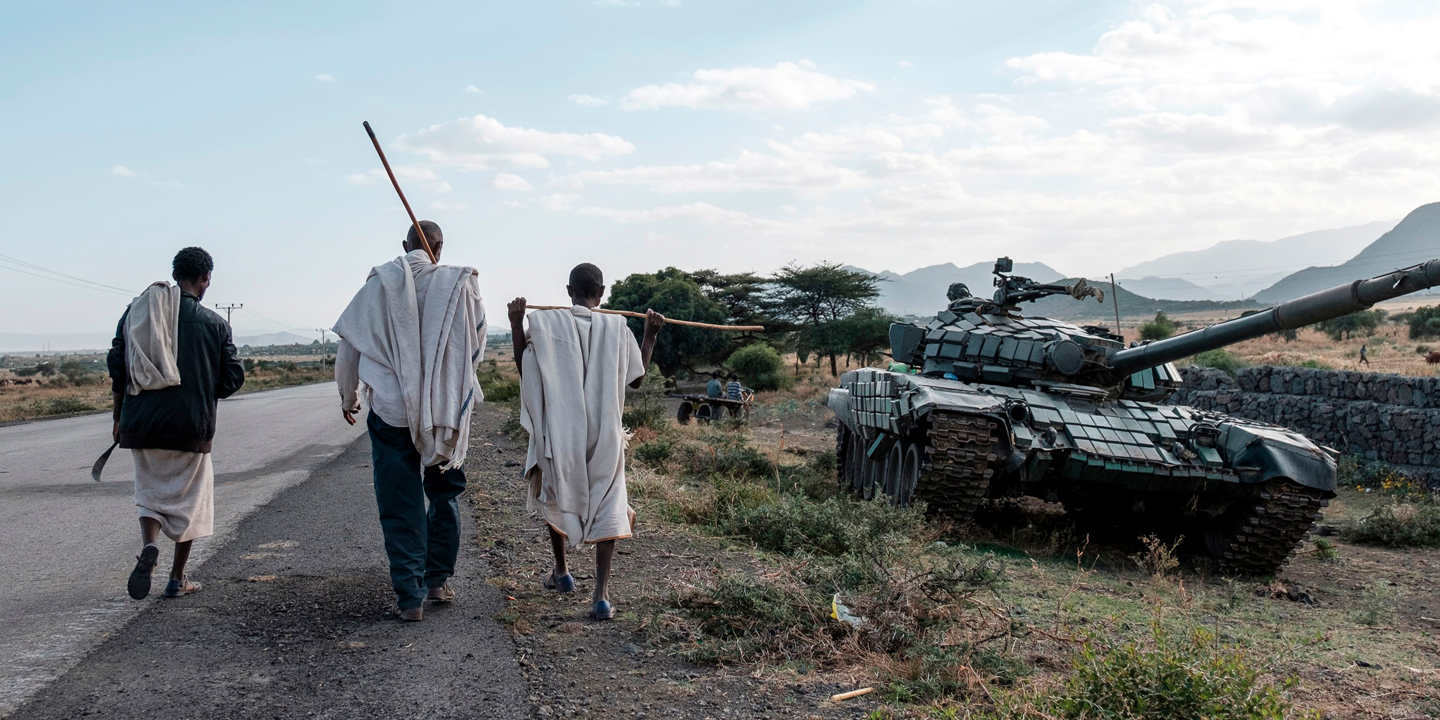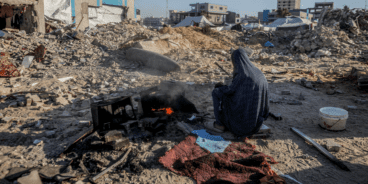

Atrocity Alert No. 234: Ethiopia, China and Niger
Atrocity Alert is a weekly publication by the Global Centre for the Responsibility to Protect highlighting situations where populations are at risk of, or are enduring, mass atrocity crimes.
Ethiopia’s Human Rights Commission reports on ongoing atrocities
On 23 December at least 207 civilians were killed in the Metekel Zone, Benishangul-Gumuz region of Ethiopia, when an armed group opened fire and burned homes while people slept. The victims were reportedly indigenous Shinasha people. Ethnic-motivated attacks have been on the rise in Metekel since September, with more than 140 civilians killed prior to 23 December. The attack also occurred one day after Prime Minister Abiy Ahmed visited the region to urge calm.
In response to a surge in mounting violence, the Ethiopian Human Rights Commission (EHRC) released two reports on 25 December and 1 January. The first report examined the Konso Zone of Southern Nations, Nationalities and People’s region where 66 civilians were killed and over 132,000 displaced between 10-21 November following a call for the redistricting of an area. The EHRC’s second report examined violence that followed the shooting of prominent ethnic Oromo activist and singer, Hachalu Hundessa, during June 2020, resulting in 239 people being killed. The Commission determined that some of the violence may amount to crimes against humanity under international law and called for the establishment of a comprehensive atrocity prevention mechanism to confront the growing threat facing the country.
Meanwhile, Ethiopian refugees fleeing to Sudan continue to report violence, forced recruitment of men and boys to armed groups, and sexual violence perpetrated against women and girls in the Tigray region. These reports continue despite Prime Minister Abiy declaring an official end to fighting in Tigray on 28 November. On 22 December the UN High Commissioner for Human Rights, Michelle Bachelet, stated that the situation in Tigray “is as heart-breaking as it is appalling” and called for “independent, impartial, thorough and transparent investigations to establish accountability and ensure justice,” for alleged war crimes and crimes against humanity.
According to the UN, the conflict in Tigray has displaced one million people since 4 November. Ongoing insecurity and a communications blackout in parts of Tigray have also hampered the delivery of critical humanitarian aid to vulnerable civilians and Eritrean refugees.
Due to the armed conflict in Tigray, the European Union (EU) has withheld €90 million in budgetary aid to the Ethiopian government. Sarah Hunter, Communications and Digital Media Officer at the Global Centre for the Responsibility to Protect, said that, “in addition to the measures imposed by the EU, states with significant military ties with Ethiopia should withhold military assistance until all reports of war crimes and other violations and abuses of human rights are properly investigated and the perpetrators held accountable, regardless of their position or affiliation.”
Uighur forced labor and ongoing crimes against humanity in Xinjiang
On 28 December BuzzFeed News published the results of a new investigation identifying at least 135 detention facilities in China’s Xinjiang region where Uighurs and other Muslim minorities were forced to work in on-site factories. The investigation assessed government records and satellite images and interviewed former detainees who reported being forced to work in the facilities. Collectively, the factories cover more than 21 million square feet (approximately 1.95 million square meters) and their growth mirrors the expansion of detention camps in Xinjiang, where an estimated 1 million Uighurs and other Muslim minorities have been indefinitely detained because of their religious and cultural practices.
On 14 December the Center for Global Policy also published evidence of coercive labor practices in Xinjiang’s cotton sector, where hundreds of thousands of ethnic Uighurs and other minorities are forced to pick cotton. Since Xinjiang produces 20 percent of the world’s supply of cotton, these findings have grave implications for global supply chains. In addition to textiles and apparel, earlier reports have identified other exports that are also sourced from factories where Uighurs work under conditions that strongly suggest forced labor. These factories are part of supply chains that provide goods for 82 global brands, allegedly including Apple, BMW, Nike and Samsung.
Nadira Kourt, Program Manager at the Global Centre for the Responsibility to Protect, has argued that, “governments and corporations must ensure they are not complicit in international crimes perpetrated in Xinjiang and should ban all products from the region. It is time to stop profiting from forced labor and other crimes being perpetrated against the Uighur population.”
100 civilians killed in Niger massacre
Last Saturday armed men launched coordinated assaults on the villages of Tchombangou and Zaroumbareye in the Tillabéri region of Niger, killing at least 100 civilians, including 17 children. The 2 January massacre was one of the deadliest attacks in Niger’s recent history. The attackers reportedly singled out men and boys in what is believed to be a reprisal attack, after residents killed members of a non-state armed group who attempted to collect a “tax” from these communities during December. The perpetrators also allegedly set fire to granaries in the villages, destroying food supplies. No group has claimed responsibility for the attack.
Condemning the attack, Alessandra Morelli, the UN Refugee Agency’s Representative in Niger, said that affected communities are now “forced to flee in a region where tens of thousands of people displaced by violence are hosted and hoping to rebuild their lives.” The Tillabéri and Tahoua regions, located near the tri-border area between Burkina Faso and Mali, currently host 60,000 Malian refugees and nearly 4,000 people who have fled from Burkina Faso. The region also hosts 138,229 internally displaced Nigeriens, a number that increased by 77 percent during 2020 as violence between non-state armed groups and security forces escalated.
Violence in the porous tri-border area between Burkina Faso, Mali and Niger has been on the rise in recent years due to arms proliferation, increased inter-communal grievances and weak state structures. Islamist armed groups have taken advantage of the fragile security situation to launch cross-border attacks. A state of emergency has been enforced in Tillabéri since 2017, but civilians have come under increased attack as armed groups linked to the so-called Islamic State in the Greater Sahara have made inroads in the region.
The 2 January massacre occurred on the same day Niger announced the results from the first round of voting in its presidential election. The vote is expected to result in the country’s first peaceful, democratic transfer of power. An election runoff will now be held on 21 February, despite the deteriorating security situation. The Nigerien government must enhance the protection of civilians and ensure people are able to vote in safety and security.
Related Content


Atrocity Alert No. 438: Israel and the Occupied Palestinian Territory, Mali and Myanmar (Burma)
